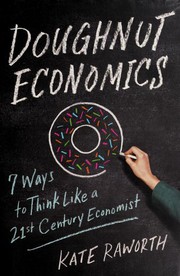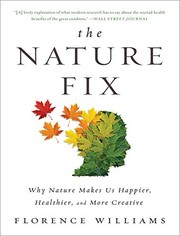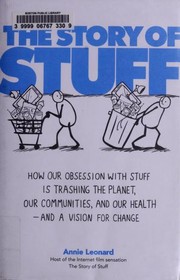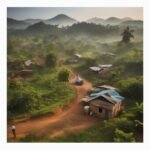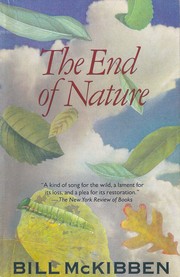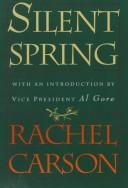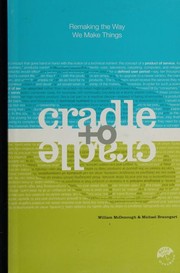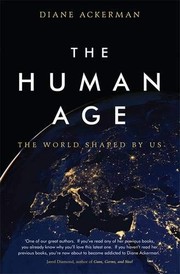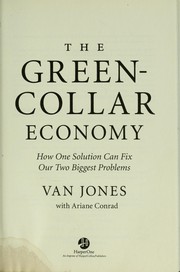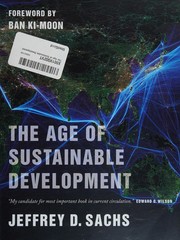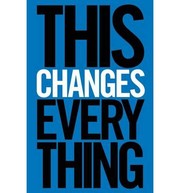Are you looking for the next great book on sustainability to add to your reading list? Look no further! We’ve curated a list of the 20 best sustainability books that will inspire and educate you on the pressing environmental issues of our time. From practical guides to thought-provoking essays and inspiring memoirs, these books cover a wide range of topics related to sustainability. Whether you’re a seasoned environmentalist or just starting to explore the subject, there’s something for everyone on this list. So, grab a cozy spot and get ready to dive into these impactful reads that will deepen your understanding of sustainability and our planet.
Contents
- 1 20 Best Sustainability Books
- 2 Drawdown: The Most Comprehensive Plan Ever Proposed to Reverse Global Warming
- 3 The Sixth Extinction: An Unnatural History
- 4 The Uninhabitable Earth: Life After Warming
- 5 Doughnut Economics: Seven Ways to Think Like a 21st-Century Economist
- 6 The Hidden Life of Trees: What They Feel, How They Communicate—Discoveries from a Secret World
- 7 Sapiens: A Brief History of Humankind
- 8 The Water Will Come: Rising Seas, Sinking Cities, and the Remaking of the Civilized World
- 9 The Nature Fix: Why Nature Makes Us Happier, Healthier, and More Creative
- 10 The Story of Stuff: How Our Obsession with Stuff Is Trashing the Planet, Our Communities, and Our Health—and a Vision for Change
- 11 The Great Derangement: Climate Change and the Unthinkable
- 12 The End of Nature
- 13 The Omnivore’s Dilemma: A Natural History of Four Meals
- 14 Silent Spring
- 15 Cradle to Cradle: Remaking the Way We Make Things
- 16 The Human Age: The World Shaped by Us
- 17 The Green Collar Economy: How One Solution Can Fix Our Two Biggest Problems
- 18 The Age of Sustainable Development
- 19 Cradle to Cradle: Remaking the Way We Make Things
- 20 Sustainability: A History
- 21 This Changes Everything: Capitalism vs. The Climate
- 22 Final Thoughts on Best Sustainability Books
- 23
20 Best Sustainability Books
Drawdown: The Most Comprehensive Plan Ever Proposed to Reverse Global Warming
by Paul Hawken
Drawdown: The Most Comprehensive Plan Ever Proposed to Reverse Global Warming by Paul Hawken is a groundbreaking book on sustainability that presents a comprehensive and inspiring plan to combat climate change. Hawken, a renowned environmentalist and entrepreneur, brings together leading researchers, scientists, and policymakers to outline 100 practical and achievable solutions to reverse global warming. The book offers a hopeful and actionable roadmap for individuals, businesses, and governments to take meaningful steps towards a more sustainable future.
Drawdown explores a wide range of strategies, from renewable energy and regenerative agriculture to carbon capture and waste reduction, demonstrating that reversing global warming is not only possible but also economically viable. Through engaging and accessible writing, Hawken empowers readers to become part of the solution and contribute to the collective effort to address one of the most pressing challenges of our time. This sustainability book is a must-read for anyone seeking to understand and take action on climate change.
The Sixth Extinction: An Unnatural History
by Elizabeth Kolbert
The Sixth Extinction: An Unnatural History by Elizabeth Kolbert is a groundbreaking book on sustainability that explores the current mass extinction of species on our planet. Kolbert takes readers on a journey through time and across the globe to showcase the impact of human activities on the delicate balance of nature. She presents compelling evidence from scientists and researchers to demonstrate how human actions, such as climate change and habitat destruction, are driving countless species to the brink of extinction. This thought-provoking book about sustainability is a wake-up call, urging readers to consider the devastating consequences of our actions and the urgent need for conservation efforts. Through engaging storytelling and thorough research, Kolbert delivers a powerful message about the interconnectedness of all life on Earth and the responsibility we have to protect and preserve it. The Sixth Extinction is a must-read for anyone passionate about the environment and the future of our planet.
The Uninhabitable Earth: Life After Warming
by David Wallace-Wells
The Uninhabitable Earth: Life After Warming by David Wallace-Wells is a groundbreaking book about sustainability that offers a stark and urgent assessment of the impact of climate change on our planet. Wallace-Wells presents a compelling and alarming exploration of the potential consequences of unchecked global warming, painting a vivid picture of a future that is both terrifying and all too real.
Through meticulous research and powerful storytelling, the author delves into the various ways in which climate change will affect every aspect of our lives, from food and water scarcity to extreme weather events and the displacement of millions of people. With unflinching honesty, he confronts the harsh realities of our current trajectory while also offering a glimmer of hope through potential solutions.
This book on sustainability serves as a wake-up call, compelling readers to confront the uncomfortable truths about the future of our planet and inspiring them to take action. It is a must-read for anyone concerned about the fate of the Earth and the generations to come.
Doughnut Economics: Seven Ways to Think Like a 21st-Century Economist
by Kate Raworth
Doughnut Economics: Seven Ways to Think Like a 21st-Century Economist by Kate Raworth is a groundbreaking book on sustainability that challenges the traditional economic mindset. Raworth introduces the concept of the “doughnut” as a new economic model that balances human needs within the ecological limits of the planet. She outlines seven key principles for rethinking economics in the 21st century, emphasizing the importance of sustainability, equity, and circularity.
This book about sustainability offers a fresh perspective on economic theory, encouraging readers to consider the social and environmental impacts of economic decisions. Raworth’s engaging writing style and thought-provoking ideas make this book a must-read for anyone interested in the intersection of economics and sustainability. Whether you’re an economist, environmentalist, or simply curious about the future of our planet, Doughnut Economics will inspire you to think differently about the way we approach economic challenges in the 21st century.
The Hidden Life of Trees: What They Feel, How They Communicate—Discoveries from a Secret World
by Peter Wohlleben
The Hidden Life of Trees by Peter Wohlleben is a captivating exploration of the intricate world of forests and the amazing ways in which trees communicate, feel, and support each other. This book on sustainability reveals the interconnectedness of trees and the complex networks through which they share resources, warn each other of dangers, and even care for their young. Wohlleben’s profound insights into the hidden life of trees will forever change the way you see the natural world around you.
Delving into the scientific discoveries and his own experiences as a forester, Wohlleben presents a compelling case for the importance of preserving our forests and the delicate balance of ecosystems. This sustainability book offers a new perspective on the value of trees and the urgent need to protect and nurture our natural environment. Whether you’re a nature enthusiast or simply curious about the wonders of the natural world, The Hidden Life of Trees is a must-read that will leave you in awe of the intelligence and resilience of these ancient beings.
Sapiens: A Brief History of Humankind
by Yuval Noah Harari
Sapiens: A Brief History of Humankind by Yuval Noah Harari is a thought-provoking journey through the history of the human species. Harari explores the major milestones that have shaped our evolution, from the Cognitive Revolution to the present day. He delves into how Homo sapiens came to dominate the planet, the impact of agriculture and the rise of empires, to the technological advancements that have transformed our societies. Through a mix of anthropology, history, and science, Harari challenges readers to question their understanding of humanity and the world around them. The book offers valuable insights into our past, present, and future, making it a must-read for anyone interested in the history of humankind.
The Water Will Come: Rising Seas, Sinking Cities, and the Remaking of the Civilized World
by Jeff Goodell
The Water Will Come: Rising Seas, Sinking Cities, and the Remaking of the Civilized World by Jeff Goodell is a compelling exploration of the impact of climate change on coastal cities and the urgent need for adaptation. Goodell takes readers on a journey to various vulnerable locations around the world, from Miami to Venice, to illustrate the devastating effects of rising sea levels. Through vivid storytelling and in-depth research, the author sheds light on the complex environmental, economic, and political challenges posed by this impending crisis.
This sustainability book is a wake-up call for individuals, governments, and industries to take decisive action to mitigate the effects of climate change and protect our coastal communities. Goodell’s insightful analysis and compelling narrative make The Water Will Come a must-read for anyone concerned about the future of our planet and the sustainability of our cities in the face of environmental challenges.
The Nature Fix: Why Nature Makes Us Happier, Healthier, and More Creative
by Florence Williams
The Nature Fix by Florence Williams is a compelling book on sustainability that explores the profound impact of nature on our well-being. Through engaging storytelling and scientific research, Williams reveals how spending time in nature can make us happier, healthier, and more creative. She takes readers on a journey across the globe, from urban parks to wilderness areas, to uncover the restorative power of the natural world.
With a keen eye for detail and a passion for the outdoors, Williams delves into the ways in which nature can reduce stress, improve cognitive function, and boost our immune systems. She also sheds light on the importance of preserving natural spaces for future generations, making a compelling case for the vital role of nature in our lives.
Whether you’re a nature enthusiast or simply curious about the book about sustainability, The Nature Fix offers a thought-provoking exploration of the interconnectedness between nature and human well-being. It’s a must-read for anyone seeking a deeper understanding of the profound benefits of nature in our modern lives.
The Story of Stuff: How Our Obsession with Stuff Is Trashing the Planet, Our Communities, and Our Health—and a Vision for Change
by Annie Leonard
The Story of Stuff is a thought-provoking book on sustainability that delves into the impact of our consumer-driven society on the planet, our communities, and our health. Author Annie Leonard takes readers on a journey through the life cycle of material goods, from extraction to production, distribution, consumption, and disposal. She highlights the environmental and social consequences of our obsession with stuff, including pollution, resource depletion, and social inequality.
However, the book doesn’t just dwell on the problems; it also offers a vision for change. Leonard presents a compelling case for transitioning to a more sustainable and equitable economy, one that prioritizes well-being over endless consumption. She advocates for a shift towards a circular economy, where resources are reused, recycled, and regenerated, and emphasizes the importance of community engagement and activism in driving this transformation.
Overall, The Story of Stuff is a must-read for anyone interested in understanding the interconnected issues of consumerism, environmental degradation, and social justice, and seeking solutions for a more sustainable future.
The Great Derangement: Climate Change and the Unthinkable
by Amitav Ghosh
The Great Derangement by Amitav Ghosh is a thought-provoking book on sustainability that challenges readers to confront the unthinkable reality of climate change. Ghosh, a renowned author and climate activist, delves into the ways in which literature, history, and politics have failed to address the urgent book about sustainability crisis facing the planet.
Through a blend of personal reflection, historical analysis, and literary critique, Ghosh examines the cultural barriers that have hindered meaningful action on climate change. He explores how the dominant narratives of modern society have perpetuated a collective blindness to the looming environmental catastrophe.
With eloquence and urgency, Ghosh urges readers to confront the unsettling truth of climate change and to reimagine our relationship with the natural world. The Great Derangement is a vital sustainability book that challenges readers to grapple with the unthinkable and to envision a more sustainable future for humanity.
The End of Nature
by Bill McKibben
The End of Nature by Bill McKibben is a groundbreaking book on sustainability that boldly addresses the impact of human activity on the environment. McKibben argues that our actions have irreversibly altered the natural world, leading to a significant shift in the Earth’s ecosystems. Through compelling storytelling and extensive research, the author paints a vivid picture of the consequences of climate change and the urgent need for sustainable practices.
McKibben’s writing is both thought-provoking and alarming, as he delves into the interconnectedness of all living things and the inherent value of preserving the planet’s biodiversity. The End of Nature serves as a wake-up call to readers, urging them to reconsider their consumption habits and take proactive measures to protect the environment for future generations. This sustainability book is a must-read for anyone seeking a deeper understanding of the ecological challenges we face and the potential solutions that lie ahead.
The Omnivore’s Dilemma: A Natural History of Four Meals
by Michael Pollan
The Omnivore’s Dilemma: A Natural History of Four Meals by Michael Pollan is a thought-provoking book on sustainability that explores the complexities of our food system. Pollan delves into the origins of our meals, examining the various ways in which food is produced, processed, and consumed in modern society. Through in-depth research and engaging storytelling, he uncovers the environmental, ethical, and health implications of our food choices, shedding light on the interconnectedness of our food system and the natural world.
From the industrialization of agriculture to the rise of organic and local food movements, Pollan provides a comprehensive overview of the current state of our food system and offers insights into how we can make more sustainable choices as consumers. The book challenges readers to rethink their relationship with food and consider the impact of their dietary decisions on the planet. With its compelling narrative and thought-provoking analysis, The Omnivore’s Dilemma is a must-read for anyone interested in understanding the complexities of our modern food system and exploring ways to promote a more sustainable future.
Silent Spring
by Rachel Carson
Silent Spring, a groundbreaking book on sustainability by Rachel Carson, was published in 1962 and is widely credited with sparking the modern environmental movement. Through meticulous research and powerful prose, Carson exposed the devastating impact of pesticides and chemicals on the environment, human health, and wildlife. She painted a vivid and alarming picture of a world in which the natural balance was being disrupted by human intervention, leading to silent springs devoid of the sounds of birds and other wildlife.
Carson’s book about sustainability ignited a fierce debate and ultimately led to significant changes in environmental policy and regulation. Her work raised awareness about the interconnectedness of all living organisms and the urgent need to protect our planet for future generations. Silent Spring remains a timeless and influential sustainability book that continues to inspire readers to take action and advocate for a healthier and more sustainable world.
Cradle to Cradle: Remaking the Way We Make Things
by William McDonough and Michael Braungart
Cradle to Cradle: Remaking the Way We Make Things is a groundbreaking book on sustainability that challenges conventional notions of production and consumption. Written by William McDonough and Michael Braungart, it presents a visionary approach to design and manufacturing that aims to eliminate the concept of waste.
The authors propose a new model where products are created with the intention of being either fully recyclable or biodegradable, thus mimicking the natural cycles of the environment. They argue that the current “cradle to grave” approach, where products are made, used, and then disposed of in landfills, is unsustainable and harmful to the planet.
Through insightful examples and practical solutions, McDonough and Braungart advocate for a paradigm shift in the way we produce goods, emphasizing the importance of eco-effectiveness and the positive impact it can have on both the environment and human well-being. This book about sustainability is essential reading for anyone interested in rethinking our approach to manufacturing and consumption.
The Human Age: The World Shaped by Us
by Diane Ackerman
The Human Age: The World Shaped by Us by Diane Ackerman is a captivating exploration of the Anthropocene, the current geological age in which humans have become the dominant force shaping the Earth’s environment. Ackerman delves into the ways in which human activity has transformed the planet, from the impact of urbanization and technology to the reimagining of nature through genetic engineering and artificial intelligence. Through a blend of science, history, and personal reflection, Ackerman paints a compelling portrait of the profound and often unintended consequences of our actions on the natural world. This sustainability book is a thought-provoking examination of the complex and sometimes precarious relationship between humanity and the environment. Ackerman’s lyrical prose and deep insights make this book on sustainability a must-read for anyone interested in the future of our planet and the role we play in shaping it.
The Green Collar Economy: How One Solution Can Fix Our Two Biggest Problems
by Van Jones
The Green Collar Economy: How One Solution Can Fix Our Two Biggest Problems by Van Jones is a groundbreaking book on sustainability that offers a compelling argument for the economic and environmental benefits of investing in green industries. Jones, a leading environmental advocate, presents a vision for a sustainable future that not only addresses climate change but also tackles the pressing issue of economic inequality. He argues that by transitioning to a green economy, we can create millions of well-paying jobs, revitalize communities, and reduce our reliance on fossil fuels. Through a combination of insightful analysis and real-world examples, Jones makes a persuasive case for why sustainability should be at the forefront of our economic and social policies. This book about sustainability is a must-read for anyone interested in the intersection of environmentalism and social justice, and for those seeking practical solutions to the challenges facing our planet.
The Age of Sustainable Development
by Jeffrey D. Sachs
The Age of Sustainable Development by Jeffrey D. Sachs is a groundbreaking book on sustainability that offers a comprehensive overview of the challenges and opportunities facing our world today. Sachs, a renowned economist and professor, provides a compelling analysis of the interconnected issues of economic development, social inclusion, and environmental sustainability. The book explores the urgent need for a new approach to development that takes into account the environmental and social impacts of economic growth. Sachs presents a compelling argument for a more holistic and inclusive approach to global development, and offers practical solutions for achieving sustainable development goals. Drawing on his vast experience in the field, Sachs provides a compelling vision for a more sustainable and equitable future. This book about sustainability is a must-read for anyone interested in understanding the complex and interconnected challenges facing our world today, and for those seeking practical solutions for a more sustainable future.
Cradle to Cradle: Remaking the Way We Make Things
by William McDonough, Michael Braungart
Cradle to Cradle: Remaking the Way We Make Things by William McDonough and Michael Braungart is a groundbreaking book on sustainability that challenges the traditional “take, make, waste” linear model of production. Instead, the authors propose a new framework that reimagines products and systems as part of a regenerative and restorative cycle. They advocate for the design of products that are not only environmentally friendly but also beneficial to human health and well-being.
The book about sustainability introduces the concept of “upcycling” materials, where waste is seen as a valuable resource that can be reused in new products, without losing its quality or integrity. The authors also emphasize the importance of renewable energy, water conservation, and the elimination of toxic chemicals in manufacturing processes.
Cradle to Cradle offers a refreshing perspective on sustainability that challenges the status quo and provides a roadmap for creating a truly sustainable future. It is a must-read for anyone interested in rethinking the way we approach design, manufacturing, and consumption.
Sustainability: A History
by Jeremy L. Caradonna
Sustainability: A History by Jeremy L. Caradonna is a fascinating exploration of the concept of ecological sustainability throughout human history. This thought-provoking book delves into the origins of environmental awareness and the evolution of sustainability practices, offering a comprehensive look at how societies have grappled with the balance between human needs and the health of the planet.
Caradonna’s well-researched and engaging writing style makes this book a compelling read for anyone interested in the history of environmentalism and the challenges of sustainable living. By examining the ways in which different cultures and time periods have approached the idea of preserving natural resources, Sustainability: A History provides valuable insights into the complex and ever-relevant issue of environmental sustainability.
This Changes Everything: Capitalism vs. The Climate
by Naomi Klein
This Changes Everything: Capitalism vs. The Climate by Naomi Klein is a groundbreaking book about sustainability that delves into the urgent need to address the climate crisis from a systemic and economic perspective. Klein argues that the current capitalist model is inherently at odds with the necessary measures to combat climate change, and that true solutions can only be found by fundamentally transforming our economic and political systems. Through a blend of powerful storytelling and rigorous research, Klein explores the interconnected issues of environmental degradation, social inequality, and corporate greed, offering a compelling case for a more just and sustainable future.
With a passionate and compelling voice, Klein challenges readers to confront the reality of the climate crisis and to consider bold alternatives to our current economic structures. This book on sustainability is a call to action for individuals, communities, and governments to prioritize the health of our planet and the well-being of future generations over short-term profit and consumption. This book is a must-read for anyone interested in the intersection of climate change, capitalism, and social justice.
Final Thoughts on Best Sustainability Books
In conclusion, these 20 best books about Sustainability offer a diverse range of perspectives and insights into the pressing issues of our time. Whether you’re interested in environmental science, social justice, or sustainable living, there’s a book on this list that can educate and inspire you. By delving into these works, we can all gain a deeper understanding of the challenges we face and the potential solutions that lie ahead. Happy reading!
Which book about Sustainability is best?
The best book on Sustainability can vary with personal preference, but three widely recommended titles are:
- Drawdown: The Most Comprehensive Plan Ever Proposed to Reverse Global Warming by Paul Hawken,
- The Sixth Extinction: An Unnatural History by Elizabeth Kolbert,
- The Uninhabitable Earth: Life After Warming by David Wallace-Wells.
Each offers valuable insights and could be a great starting point.
What are the best books to learn about Sustainability?
For those looking to learn about Sustainability, there is a wealth of literature that can provide a comprehensive understanding of the subject. Some of the most highly recommended books include:
- Drawdown: The Most Comprehensive Plan Ever Proposed to Reverse Global Warming by Paul Hawken,
- The Sixth Extinction: An Unnatural History by Elizabeth Kolbert,
- The Uninhabitable Earth: Life After Warming by David Wallace-Wells,
- Doughnut Economics: Seven Ways to Think Like a 21st-Century Economist by Kate Raworth,
- The Hidden Life of Trees: What They Feel, How They Communicate—Discoveries from a Secret World by Peter Wohlleben,
- Sapiens: A Brief History of Humankind by Yuval Noah Harari,
- The Water Will Come: Rising Seas, Sinking Cities, and the Remaking of the Civilized World by Jeff Goodell,
- The Nature Fix: Why Nature Makes Us Happier, Healthier, and More Creative by Florence Williams,
- The Story of Stuff: How Our Obsession with Stuff Is Trashing the Planet, Our Communities, and Our Health—and a Vision for Change by Annie Leonard,
- The Great Derangement: Climate Change and the Unthinkable by Amitav Ghosh
These books offer a range of perspectives on Sustainability, covering various aspects and approaches to the subject.
What are the best books about Sustainability?
The best books about Sustainability are:
- Drawdown: The Most Comprehensive Plan Ever Proposed to Reverse Global Warming by Paul Hawken,
- The Sixth Extinction: An Unnatural History by Elizabeth Kolbert,
- The End of Nature by Bill McKibben,
- The Omnivore’s Dilemma: A Natural History of Four Meals by Michael Pollan,
- The Nature Fix: Why Nature Makes Us Happier, Healthier, and More Creative by Florence Williams,
- Sapiens: A Brief History of Humankind by Yuval Noah Harari.
Each offers unique insights into the subject. While these books about Sustainability are highly regarded, it’s important to note that any list of ‘best’ books is subjective and reflects a range of opinions.
What are the best Sustainability books of all time?
Choosing the best Sustainability books of all time can vary depending on who you ask, but five titles that are often celebrated include
- Drawdown: The Most Comprehensive Plan Ever Proposed to Reverse Global Warming by Paul Hawken,
- The Sixth Extinction: An Unnatural History by Elizabeth Kolbert,
- The Hidden Life of Trees: What They Feel, How They Communicate—Discoveries from a Secret World by Peter Wohlleben,
- The Nature Fix: Why Nature Makes Us Happier, Healthier, and More Creative by Florence Williams,
- and The End of Nature by Bill McKibben.
Each of these books has made a significant impact in the field of Sustainability and continues to be influential today.




